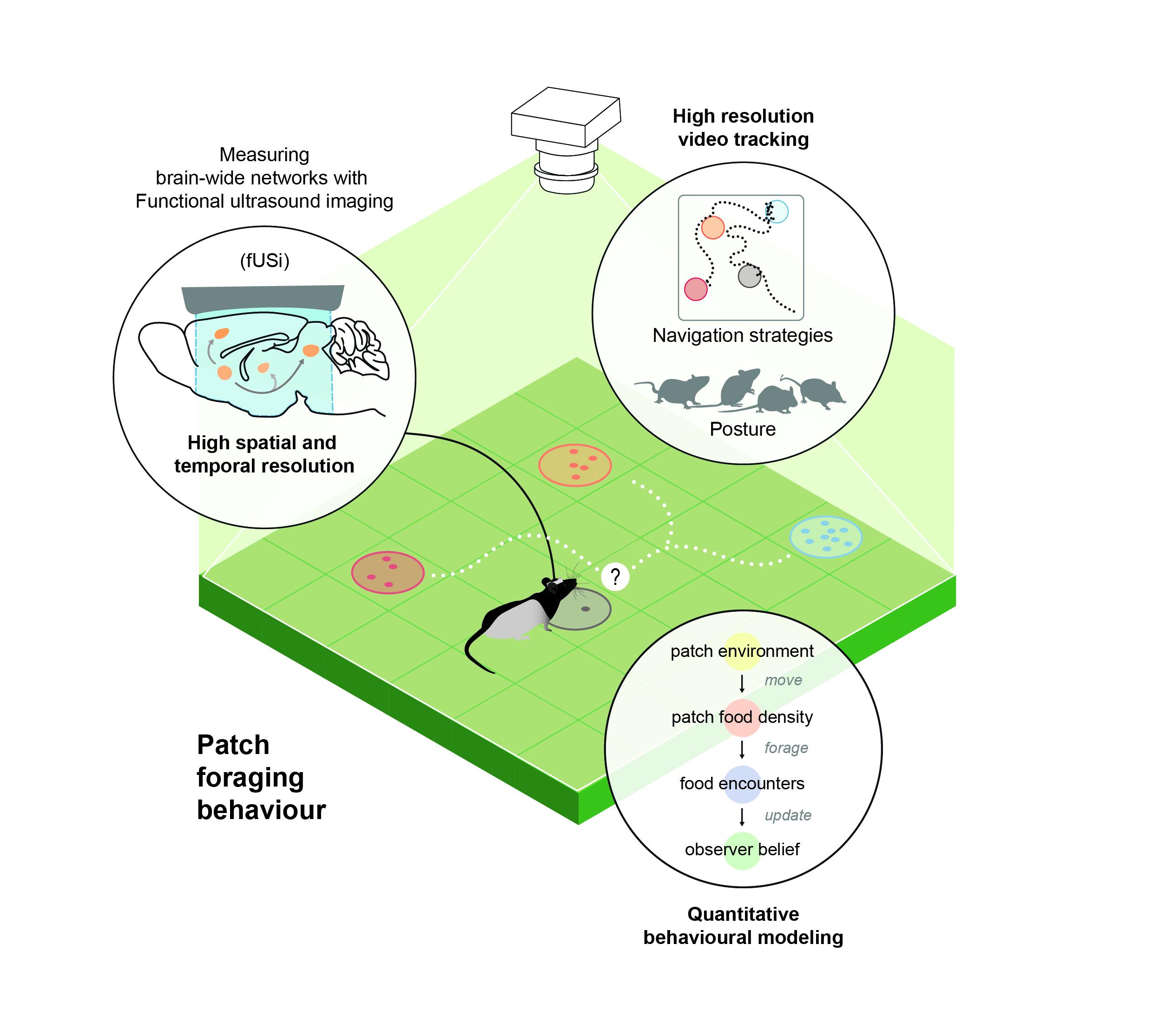Abstract:
Foraging is a ubiquitous behaviour performed by all animals as search for food is crucial for survival. When the animal is foraging throughout its environment searching for resources, it is employing a variety of cognitive computations from decision making to planning to learning in addition to adjusting its bodily dynamics. Foraging as a behavior allows studying cognitive dynamics in a natural context and opens up the opportunity for evolutionary comparison across species. In this talk, I will provide a conceptual framework for an integrative understanding of patch foraging focusing on recently developed mechanistic theoretical models, that delineate the potential decision strategies an animal might employ to decide when and how to leave a patch of food across environments with different statistics. I will discuss how these models can be extended to the social foraging realm. These theoretical models can be fit to field data from a variety of species , to unravel the diversity of foraging strategies across environments. Closing the loop between theoretical models, field studies and large scale naturalistic experiments will shape the future of social foraging studies.

Biography:
Ahmed El Hady is a multifaceted scientist and intellectual. He is currently a junior group leader at the center for advanced study of collective behaviour at University of Konstanz and the Max Planck Institute of Animal Behaviour. He did his postdoctoral work at the Princeton Neuroscience Institute where he studied the neural basis of decision making in rats and social-vocal communication in Marmoset monkeys. He obtained his PhD at the Max Planck Institute for Dynamics and Self organization where he worked on biophysics of the action potential and neuronal network dynamics. His current research interests are experimental and theoretical studies of foraging behaviours across the animal kingdom with a special emphasis on locusts and rodents.
